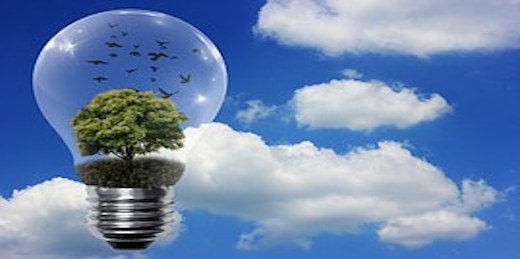The below article titled “Abu Dhabi Sustainability Week: Gulf region eyes future in green economy” was published in the Arab Weekly on 4th Feb 2018, and can be directly accessed here. Comments are highlighted in the article posted below.
Abu Dhabi Sustainability Week: Gulf region eyes future in green economy
In what is likely to be a blueprint for desert regions across the globe, Abu Dhabi unveiled the world’s largest man-made desalinated water reserve in the desert at Abu Dhabi Sustainability Week.
The event brought the world’s sustainability community together to learn about the major social, economic and environmental trends shaping global development. It took place with the overarching theme of “Driving the Global Energy Transformation.” Three core topics were the focus of discussions: climate change and resource scarcity, sustainable cities and urbanisation and technology disruption and digitisation.
The United Arab Emirates was seen as vigorously pursuing the objectives of its Vision 2021, placing a sharp focus on improving the country’s environmental performance and promoting sustainable initiatives as part of the transition to a low-carbon economy. Among the projects is a reserve of high-quality desalinated water, which is contained in a network of 315 recovery wells below the Liwa Desert. The system has an infiltration and recovery system sitting atop a natural fresh water underground aquifer. The desalinated water is piped from the coast to create the secure reserve system.
Saudi Arabia also announced it was pushing ahead with renewable energy projects, which will include wind, solar and geothermal projects. It plans to invest up to $50 billion in the efforts over the next five years.
Saeed al-Abbar, chairman of Dubai-based Emirates Green Building Council (EmiratesGBC), stressed the industry’s “clear shift of focus to a growing market of renewables and energy and water retrofits.”
“The various stakeholders displayed new and innovative business approaches to encourage the adoption of renewable and energy efficient technologies, which ultimately provides financial benefits as well as furthers the sustainability agenda,” al-Abbar said.
“It was also very encouraging to witness the launch of new pavilions, such as the ‘Water and Energy Storage and Batteries,’ which demonstrate a more holistic approach to sustainability. This is an indicator that the industry has matured and is better equipped for a fast-changing future in energy conservation,” he added.
Al-Abbar said the 2018 World Future Energy Summit is evidence that the market is increasingly aware of the available technologies and the importance of establishing them as a standard in various sectors. “The next step would be to develop strong frameworks and policies to accelerate their implementation,” al-Abbar said.
On the Gulf and the rest of the Middle East preparing for a decarbonised future economy, al-Abbar said: “On a strategic level, the region needs to act fast — energy consumption is high, and our natural resources are being depleted. We need to focus on decarbonising the built environment, a major source of emissions in the region. In this regard, EmiratesGBC has set a key objective for 2018 of creating a Centre of Excellence for net-zero energy buildings.”
“This year we see emphasis given to sustainability in buildings and the growing market of ESCOs (energy service companies) in the GCC region,” said Nasser Saidi, chairman of the Clean Energy Business Council. “Buildings consume around 60% of the electrical generation in the [Gulf Cooperation Council] GCC and represent a growing demand in residential and commercial areas and it’s a topic of strong interest from utilities and municipalities alike.”
He noted that another new area of focus this year was electrical vehicles with manufacturers exhibiting current production models as well as future ones.
“We also saw announcements made by regulators and government officials through their country pavilions, which provided timely and insightful information to developers and the private sector on the status of solar markets across the GCC,” Saidi said.
He said the Middle East, as well as GCC countries, are developing their strategies and mandates around combating climate change and reducing their carbon footprint across the primary energy usage sectors such as power generation and transportation.
Saidi said it was encouraging to see initiatives to address climate change in the GCC. He pointed to Abu Dhabi-based Masdar presentation at Paris climate change conference for reducing the carbon footprint of the growing sector of seawater desalination.
“I think the GCC is playing a role which is expected to take on more momentum and energy in the next couple of years. It is assuming a leadership role in large-scale solar PV [photovoltaic] utility power plants, which has achieved a [gigawatt] scale and ground-breaking tariffs, enabling a significant growth of clean energy in the power-generation mix of utilities across the GCC,” Saidi said.
Given the severe risks of climate change in the Middle East, particularly in desert areas, it is important that GCC countries deal with the effects of changing environmental conditions.
“Climate change risk must be part of the analytical and policy assessment of all infrastructure and development projects. The UAE can be the champion of this innovation,” Saidi said.
Comments on the Abu Dhabi Sustainability Week event in the Arab Weekly, 4 Feb 2018
5 February, 2018
read 3 minutes
Read Next
TV and radio
Bloomberg’s Horizons Middle East & Africa Interview, 17 Jul 2024
Aathira Prasad joined Joumanna Bercetche on 22nd July, 2024 as part of the Horizons Middle
18 July, 2024
media page
“A GCC spaceport could bring galactic gains”, Op-ed in Arabian Gulf Business Insight (AGBI), 4 Jul 2024
The opinion piece titled “A GCC spaceport could bring galactic gains” was published in the
5 July, 2024
media page
“Central Bank Digital Currencies: Will they replace the cash in our wallets?”, Op-ed in The National, 30 Jun 2024
The article titled “Central Bank Digital Currencies: Will they replace the cash in our wallets?”
30 June, 2024






